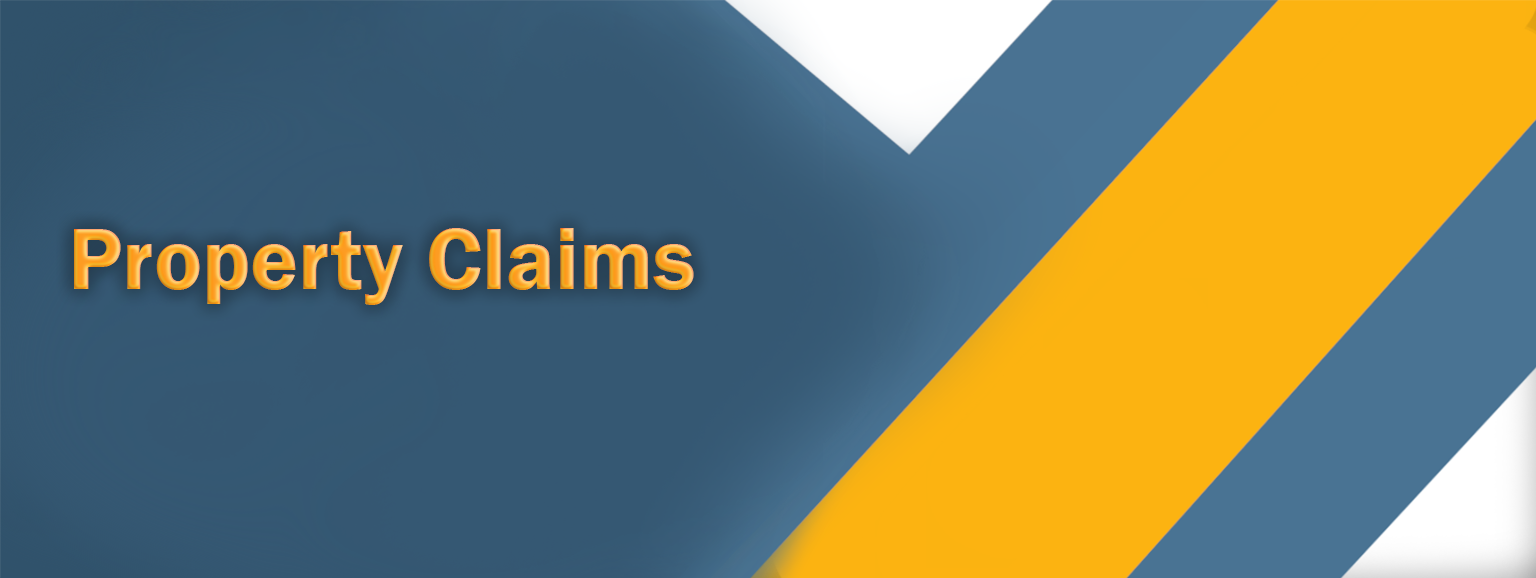Property Claims
Overview of Property Claims
Risk Services coordinates property claims for the campus. Claims are handled by Sedgwick, the university’s third party claims administrator. A Claims Examiner will be assigned. The Claims Examiner is your primary contact on the claim.
Suggestions for a better claims experience
- Report the claim as soon as possible.
- Be responsive to the Claims Examiner.
- Contact propertycasualty@ucsc.edu if the Claims Examiner is not being responsive to you or if you have any concerns during the claims process.
What to Expect
Coverage Determination - an investigation into what happened and an evaluation of whether the property insurance policy's terms, conditions, exclusions support payment of the loss. Coverage determinations range from quick and easy to complex and long requiring expert evaluation by specialized investigators. Expect a lot of questions about the incident itself.
Damage Evaluation - a determination of whether specific damages are payable. Sometimes the Claims Examiner needs to know a lot about the damages to determine if there is coverage. Solely because the Claims Examiner is asking about damages does not mean that the claim will be paid. Expect questions about ownership, maintenance, original purchase price, repair cost and replacement cost.
Damage to Facilities - very important!
Contractors must supply detailed estimates and invoices including a breakdown between labor and materials and a detailed description of the work they are doing. Your funding is at risk if you cannot provide adequate documentation. Make sure PPDO and Housing Facilities know that you have submitted a claim so that they can contract appropriately.
Reimbursement - if the claim is payable, then the claim will be paid on a reimbursement basis. The reimbursement will come via journal. Risk Services will ask you for an org code. Risk Services will then provide the FOAPAL to Sedgwick. Do not provide a FOAPAL directly to the Claims Examiner.
More suggestions for a better experience
- The faster you get information to the Claims Examiner, the faster your claim moves forward. Identity the right person to talk to the Claims Examiner about what happened.
- Don't ignore questions that don't make sense to you or that you don't think you can address. Involve others to answer questions that are not within your scope. Ask Risk Services for help as needed.
- We ask to be copied on all email to the Claims Examiner so that we can monitor the claim.
- If you are experiencing a problem, send an email to us at propertycasualty@ucsc.edu to escalate a concern.
Avoid common problems
- Police Reports - Risk Services obtains UCPD police reports and provides those reports to the Sedgwick Claims Examiner. Campus units should not be asked for UCPD police reports. Tell us if you are asked for a UCPD Police Report and we will follow-up with Sedgwick. In most cases, we order the UCSC police report automatically at the start of a claim.
- Reporting - Property claim reporting are submitted using the online reporting form. You should not be asked for an additional reporting form. Risk Services forwards the initial claim report to Sedgwick. Tell us if the Claims Examiner asks for another reporting form.
- Funding Information - The Sedgwick Claims Examiner should not ask you for the account information to fund the claim (i.e. FOAPAL). Risk Services will work with you to obtain your account and then Risk Services will forward the fund, account and any activity code that you chose to use to Sedgwick. If you are asked for funding information by the Claims Examiner, contact Risk Services. Please do NOT forward any funding information to Sedgwick directly.

